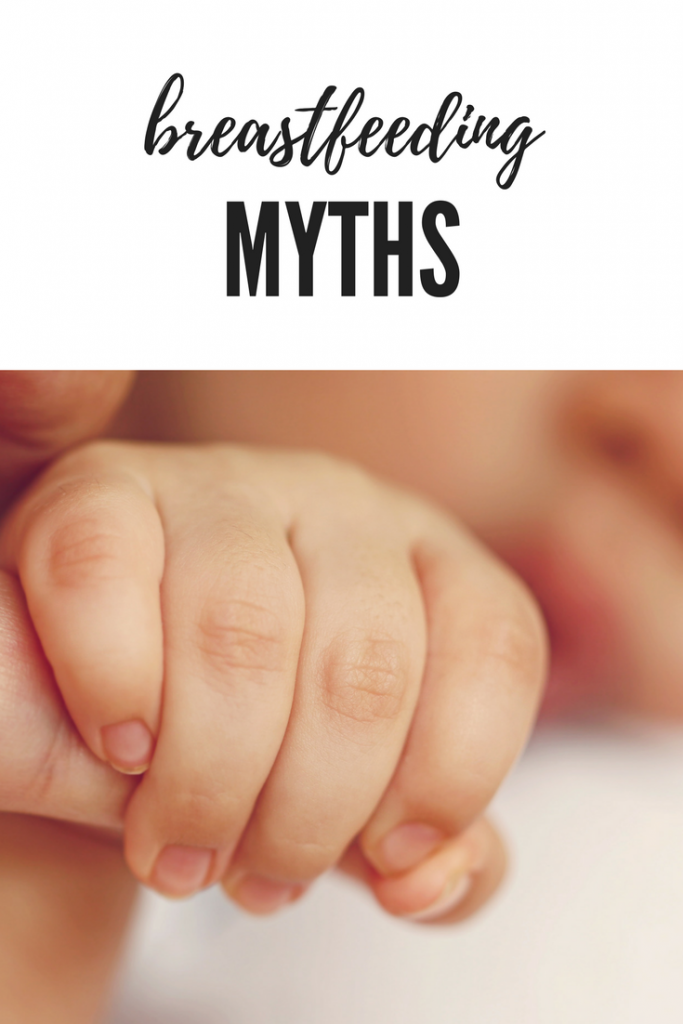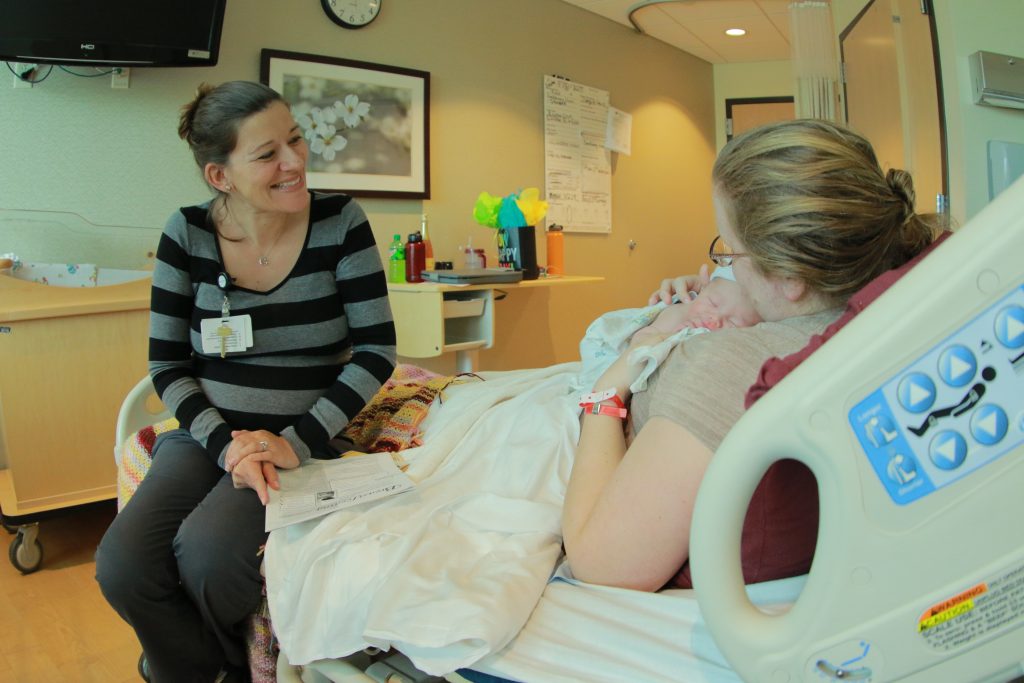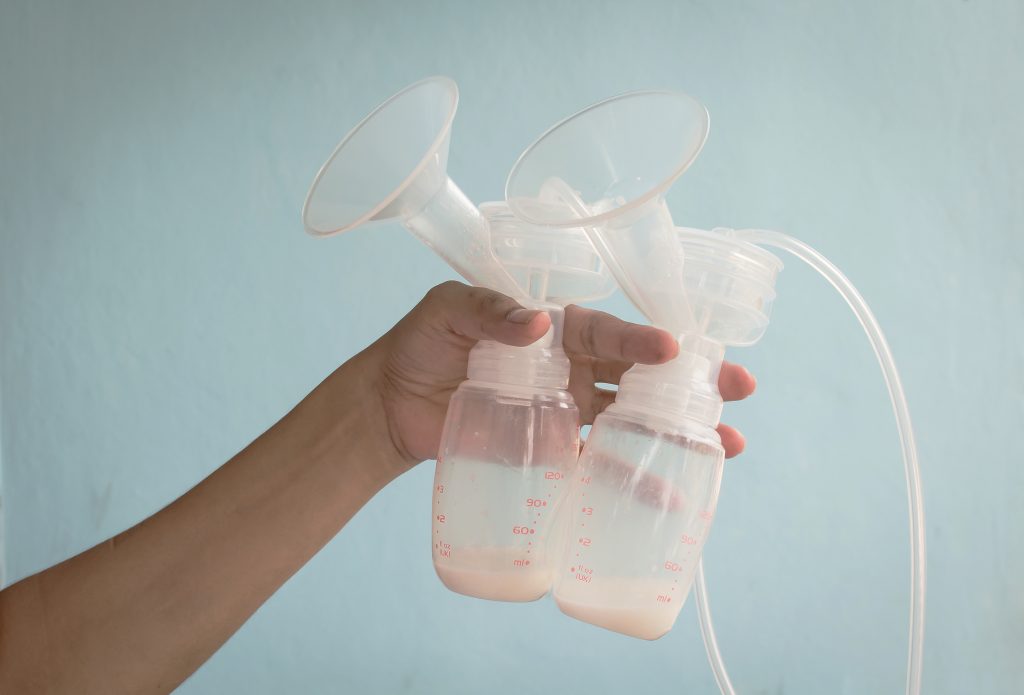Breastfeeding Myths Debunked
While it is a natural part of the mothering experience, breastfeeding can often be confusing and stressful. As women, we hear different information from different sources and sometimes we aren’t exactly which are breastfeeding facts and which are breastfeeding myths. In fact, at our last Breastfeeding Support Group, this was our topic of conversation.
Today I’m going to go through some of the most popular (and convincing) breastfeeding myths to help you better navigate what you may be hearing.

“You won’t be able to produce enough milk for your baby.”
For some mothers who have medical conditions that inhibit their ability to provide enough milk, this is true. But most women can, and will, produce enough milk with the proper breast stimulation.
The best way to know that your supply is sufficient is by looking at your baby’s wet and dry diapers and monitoring his or her weight gain. If your baby eats frequently or is fussy after feedings, this could be for a variety of reasons and is not an automatic reason to assume that he or she isn’t getting enough milk.
If you have any concerns about your breast milk production, schedule an appointment with one of Western Missouri Medical Center’s International Board Certified Lactation Consultants (IBCLC). We will meet with you, weight your baby before and after a feeding and discuss your production concerns.
“Lactation specialists all have the same qualifications.”
There are actually many different certifications that a lactation specialist can receive in order to assist moms with breastfeeding, and having these resources at your disposal is wonderful! But it also can be challenging if you are hearing different information from various experts. It is important to know that the gold standard and highest qualification for lactation specialists is the IBCLC. At Western Missouri Medical Center, we have two IBCLCs on staff for your inpatient and outpatient breastfeeding needs.

“You can hardly eat anything while breastfeeding.”
This breastfeeding myth can be a confusing one. Many moms hear that they can’t eat certain foods while they are breastfeeding, but that is not the case. The key is watching the amount of certain foods that you eat. Moms who are breastfeeding will need to watch seafood that is high in mercury and excessive alcohol. Gassy foods, spicy foods and caffeine are not typically problematic, as often thought. This is because most babies deal with a degree of gassiness regardless of what you eat because of their immature digestive systems.
In rare instances, food sensitivities can exist but are usually diagnosed due to mucus or blood in their stool. If you have concerns regarding food sensitivities, it is best to schedule an appointment with a pediatrician for a full assessment.
“It is impossible to breastfeed and work.”
Continuing to breastfeed after your maternity leave ends is possible! As long as you are willing to pump when you are away from your baby, there is no reason that you need to stop breastfeeding if you are planning to return to work.
Breastfeeding while working does require some preparation and a discussion with your employer, but employers are required to allow nursing mothers time to pump while at work (no breastfeeding myth here) so there is no reason you can’t do both!
In fact, some employers provide special areas reserved for moms, with their comfort in mind. Western Missouri Medical Center, for example, offers a breastfeeding room with comfortable chairs and privacy curtains so that moms have a special place to go when they need to pump.

“If your baby feeds more often than those who are bottle fed, they must not be getting enough milk.”
Breastfed babies often eat more frequently than bottle-fed babies because breast milk is easier for a baby’s belly to digest. That means the milk moves through their system more quickly, therefore, they are hungry again sooner. This isn’t a bad thing! This means that your baby’s body is using the breast milk efficiently, which is good, ensuring they are getting the most out of every meal.
“Breastfed babies should never have a bottle or pacifier.”
No matter how your baby is fed, it is completely okay for he or she to have a pacifier or bottle—most babies will be given one at some point in time.
The key is offering them appropriately so as to minimize the risk that baby starts to prefer one to the other. Pacifiers help infants to learn to self-soothe, which is good. It’s important to offer a pacifier after feedings versus when an infant is hungry, so they don’t then interfere with a feeding and baby misses an opportunity to nurse.
Bottles are sometimes necessary if mom is working or going to be away from the baby, or if the baby is having trouble latching to the breast. In these instances, using a paced-bottle feeding method will help infant get milk from the bottle similarly to breastfeeding. This ensures the infant does not get used to how easy a bottle is compared to breastfeeding and develop a flow preference.
If you have any questions concerning breastfeeding or are dealing with one of the common breastfeeding hurdles, call (660) 262-7519 to schedule an outpatient appointment with one of our IBCLCs. We’ll talk through your concerns and questions with you, helping you and your baby to become more at ease with breastfeeding.
